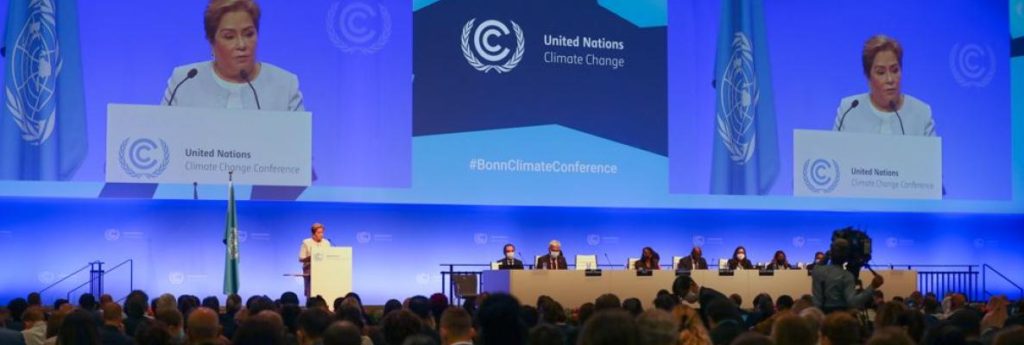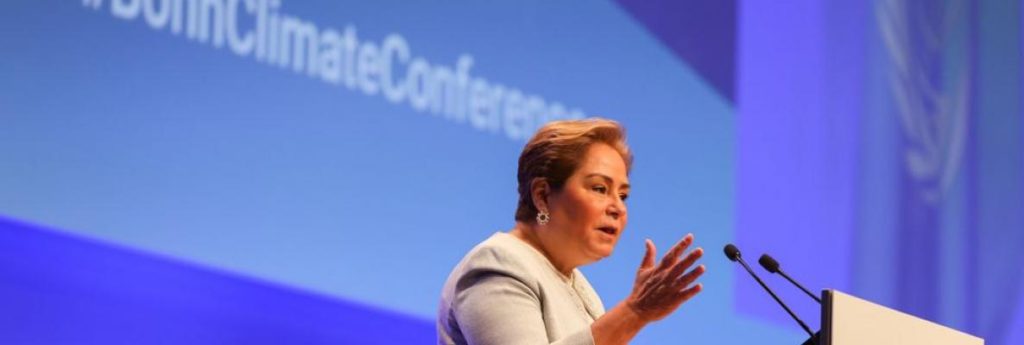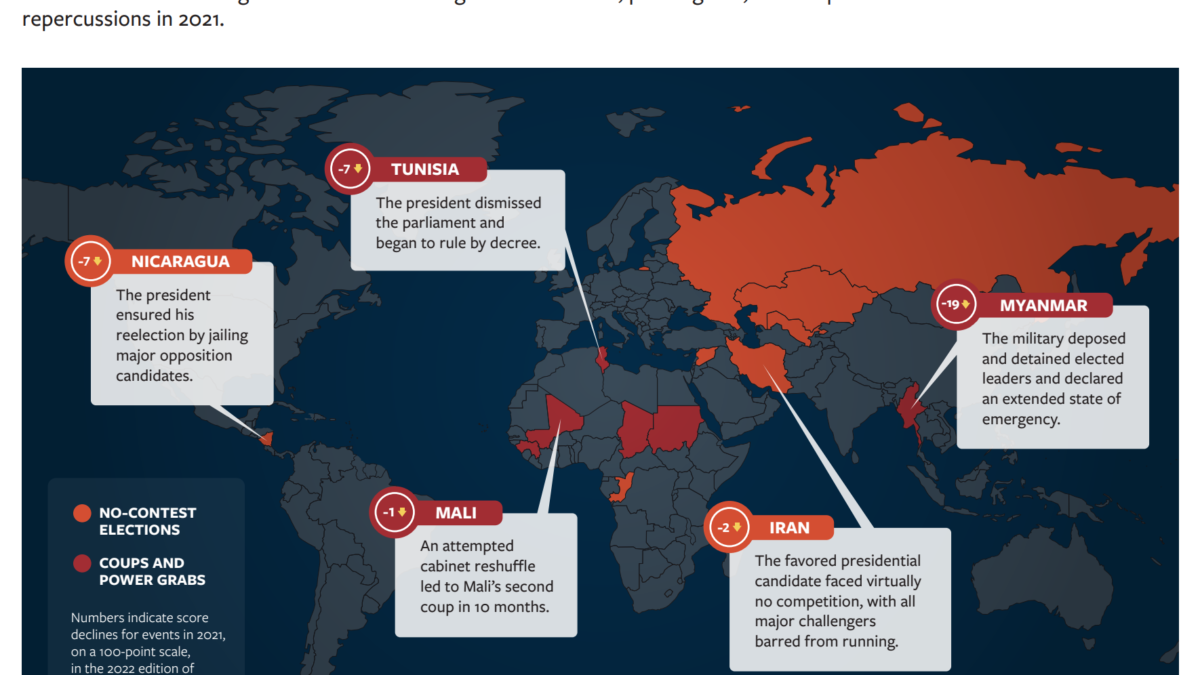Climate talks start in Bonn as Ukraine war overshadows threat of global warming – “There is this disconnect between the scientific evidence of global crisis in the making, versus the lack of action”

6 June 2022 (AFP) – Negotiators from almost 200 countries will meet in Bonn Monday for climate talks tasked with reigniting momentum on tackling global warming, as Russia’s invasion of Ukraine overshadows the threat from rising emissions.
The conference will set the stage for a fresh round of major United Nations talks later this year in Egypt.
It will also be a chance to test the resolve of nations facing a catalogue of crises, including escalating climate impacts, geopolitical tensions, bloodshed in Ukraine and the threat of a devastating global food crisis.
“Climate change is not an agenda we can afford to push back on our global schedule,” said outgoing UN climate change chief Patricia Espinosa ahead of the meeting.
She said it is imperative that nations arrive at the UN COP27 meeting in Sharm el-Sheikh in November prepared to show they are taking “bold, concrete steps — backed by specific plans — to deliver the urgent and transformational climate ambition we simply must see before it’s too late”.
Governments have already accepted that climate change is a grave threat to humanity and the planet and have advocated immediate action to cut fossil fuel emissions and prepare for the accelerating impacts of warming.
The summary to this year’s landmark climate report from the Intergovernmental Panel on Climate Change concluded that any further delay in action “will miss a brief and rapidly closing window of opportunity to secure a liveable and sustainable future for all”.
But as things are going, the world is unlikely to be able to meet the Paris climate deal’s commitment to limit warming “well below” 2 degrees Celsius above pre-industrial levels.
“There is this disconnect between the scientific evidence of global crisis in the making, of potentially rushing towards unmanageable climate impact, versus the lack of action,” Johan Rockstrom, director of the Potsdam Institute for Climate Impact Research, told AFP.
“This is a deep worry.”
The world has warmed nearly 1.2C so far — enough to usher in a crescendo of deadly heatwaves, floods and storm surges made worse by rising seas.
Funding focus
While the June 6 to 16 conference in Bonn is a largely technical meeting aimed at preparing for Egypt, there are a number of key issues up for debate.
A particular focus will be funding from rich polluters to help vulnerable developing nations least responsible for global heating to cope with its increasingly ferocious consequences.
A promise of $100 billion a year from 2020 to help them adapt to a warming world has still not been met.
Meanwhile, there are growing calls for “loss and damage” funding for countries already struck by devastating climate impacts, with a specific dialogue on the subject slated for this week.
The Alliance of Small Island States has warned that the Bonn conference must not be “just another talk shop”, calling for a “clear view” on when and how this financing will be put in place.
‘Fragile’ world
UN Secretary General Antonio Guterres last week warned that Russia’s invasion of Ukraine risked slowing action to combat the climate crisis.
“But I think this war has demonstrated one thing: how fragile the world is in its dependence to fossil fuels,” he added.
The invasion has prompted countries, particularly in Europe, to scramble to shore up energy supplies. It has also caused wheat and fertiliser prices to soar.
Fears of a food crisis have intensified in recent weeks, with India moving to ban wheat exports after the hottest March and April on record — blamed largely on climate change — hit harvests.
One opportunity for exhibiting political will comes on Wednesday when the European Parliament votes several hotly debated planks of the bloc’s sprawling “Fit for 55” climate plan.
EU member states have set themselves the target of reducing their greenhouse gas emissions by 55 percent by 2030 compared to 1990, and achieving carbon neutrality for the continent by 2050. [more]
Climate talks start in Bonn as Ukraine war overshadows threat of global warming

Bonn Climate Change Conference to Lay Groundwork for Success at COP27
6 June 2022 (UNFCCC) – This year’s Bonn annual UN Climate Change Conference kicked off today, designed to lay the groundwork for success at COP27 in Sharm el-Sheikh, Egypt.
Governments are meeting for the first time since the conclusion of the UN Climate Change Conference COP26 in Glasgow last November, at which the operational details of the Paris Agreement were finalized, thereby ringing in the era of implementation of the agreement.
In Bonn, governments will focus on work in the key areas of mitigation, adaptation, support to developing countries – particularly finance – and loss and damage.
Speaking to delegates at the opening of the Bonn sessions, UN Climate Change Executive Secretary Patricia Espinosa said:
“We urgently require political-level interventions and decisions in each of these areas in order to achieve a balanced package. Doing so will send a clear message to the world that we are headed in the right direction. Because the world is going to have one question in Sharm El-Sheikh: what progress have you made since Glasgow?”
The UN’s top climate change official warned that climate change is progressing exponentially. With the world currently on track to more than double the 1.5 Celsius goal of the Paris Agreement by the end of the century, ambition must urgently be raised to avoid the worst impacts of climate change, and immediate action and progress in Bonn are needed.
“We must move these negotiations along more quickly. The world expects it. They know that while nations made a commitment to meeting the Paris Agreement’s 1.5 degrees C goal, that commitment entailed accelerated action and increased climate ambition. It is not acceptable to say that we are in challenging times — they know that climate change is not an agenda we can afford to push back on our global schedule,” she said.
COP27 in Egypt will primarily focus on implementation, and nations are expected to show how they will, through legislation, policies and programs, and throughout all jurisdictions and sectors, begin putting the Paris Agreement into practice in their home countries.
In an emotional address, Patricia Espinosa announced the end of her term in office after six years at the helm of the UN Climate Change secretariat. She implored delegates to continue to support the work of the secretariat and inclusive multilateralism, which encompasses the work of all key stakeholders to address climate change. Looking back at key milestones of the UN Climate Change process, she said:
“Look at what we’ve accomplished in the last six years. Look at what we’ve accomplished in the last 30. While we are still very much behind the climate curve, the world is in a better position because of the UNFCCC, because of the Kyoto Protocol, because of the Paris Agreement. Because of collaboration. Because of multilateralism. Because of you. But we can do better, we must.”
Bonn Climate Change Conference to Lay Groundwork for Success at COP27


